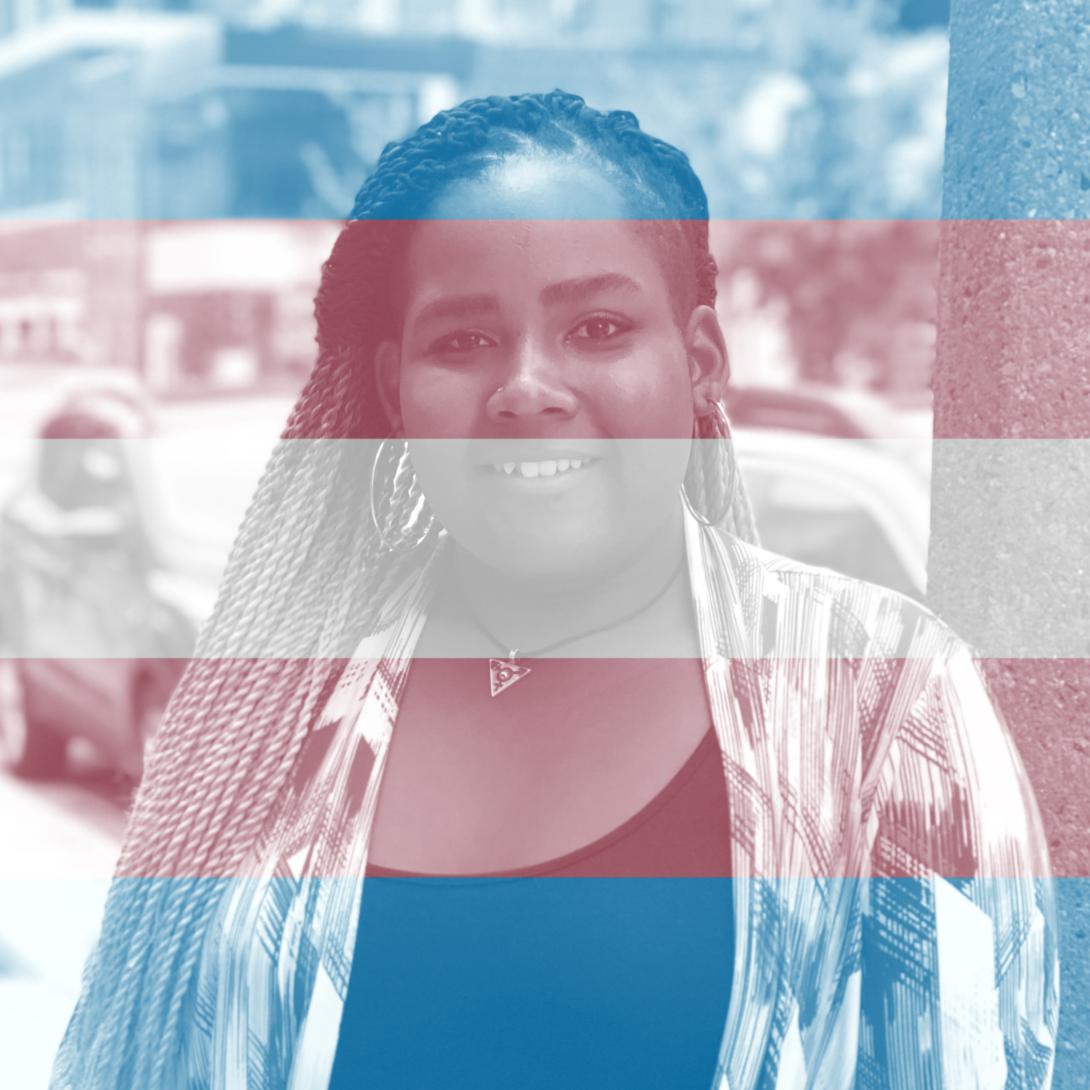October 30, 2019 | By Hannah Brauer, Photographer/Writer Student Lead
LaVelle Ridley (she/her/hers), a Ph.D. candidate for English and Women’s Studies, has known she wanted to pursue graduate school since her sophomore year of her undergraduate program. She has worked tirelessly since then to bring her to the University of Michigan, where she is pursuing her dream of becoming a Women’s Studies professor and completing her dissertation on black literary, feminist, and queer studies.
As a black trans student, however, Ridley has faced countless obstacles to get to this point in her career — often more so than the average student entering the field.
“Everyone experiences imposter syndrome in higher education, but when you come from multiple marginalized backgrounds, it hits a bit harder,” Ridley said. “I had to consciously deconstruct and confront the feelings of doubt and low self-worth that permitted me to feel like I was an imposter in academia.”
Yet despite these obstacles, Ridley has remained resilient and is in the fourth year of her program. She is using the product of her determination to add more trans representation to her field.
“[My dissertation] analyzes contemporary black trans narratives through political and theoretical frameworks of prison abolition, fugitivity, and critical imagination,” Ridley said. “At the core of the project is my desire to uplift and center the writing of black trans people and demonstrate how their art moves us closer to freedom.”
Ridley’s trans advocacy does not start and end with her dissertation; she was also involved in her university’s LGBTQ+ student organization during her undergraduate program, and at U-M, she has worked with the Spectrum Center and facilitated meetings for the QTPOC CenterSpace.
“A huge part of my advocacy for my community is making myself as unapologetically visible and vocal as possible,” said Ridley. “I’m a proud bisexual, transsexual black woman who’s strictly T4T (trans for trans) and loves having community around her. I always look forward to opportunities to uplift and support my trans community.”
Transgender Awareness Week is celebrated each year from November 13-19 to raise the visibility of the trans community and the obstacles they face. For Ridley, this week has become a more nuanced experience as she continues her transition.
“[This] is a time to celebrate, educate, advocate, and mourn,” said Ridley. “Any time I celebrate successes in our community or great moments of visibility, I also take into account what was sacrificed or violently taken for that visibility to be possible. Trans Awareness Week presents a great opportunity to reflect on the precarity that still exists in our communities and work towards addressing it in meaningful, impactful ways.”
For other members of the trans community pursuing higher education, Ridley emphasized having a strong support system, therapy, and by focusing on signs of progress. Her advice: understand that no matter what your experiences are, you are as qualified as any other person seeking higher education.
“You have a unique and necessary position that is greatly needed in the profession and in our world,” Ridley said. “Surround yourself with people who can support and advocate for you. Higher ed is something you cannot do alone and you will need people in your corner to bat for you.”
Ridley also acknowledged the opportunity to add trans representation by taking advantage of institutional resources.
“Try your best to give back and lift others up when possible,” she said. “If you can sponsor an event to bring in a trans speaker, do it! If you have an opportunity to partner with a local organization or nonprofit that works directly with the trans community, do it! If you have the chance to work with trans people on campus, especially students, do it!”
For Trans Awareness Week, Ridley noted the impact of trans visibility on the future of higher education.
“I’m one of the few visible, out black trans women in academia and I hope our numbers grow exponentially in the next few years,” she said. “Black trans women are in academia, it is possible to create a life and legacy here, and we are capable of not only doing this work, but excelling at it.”
Ridley will be participating in a roundtable at the National Women’s Studies Association this November. In addition, her first two academic publications are coming out within the next few months in GLQ and TSQ.

